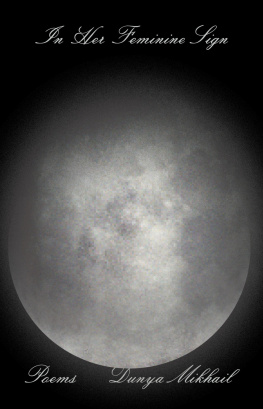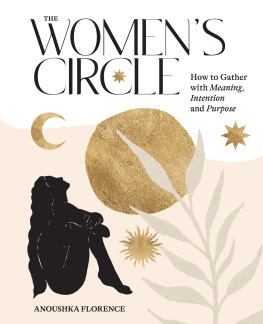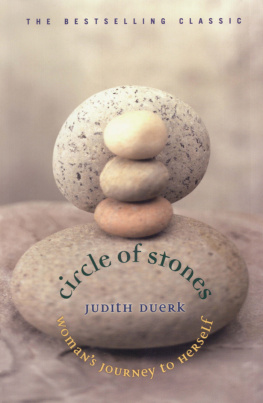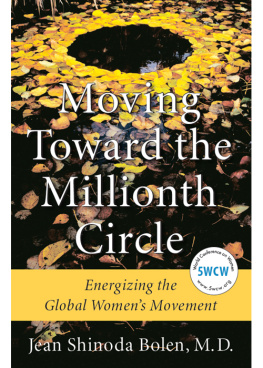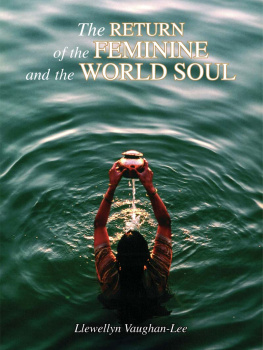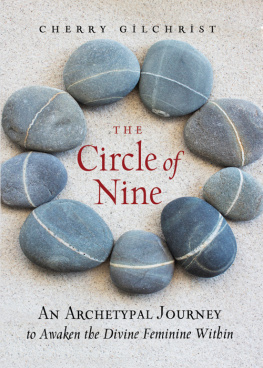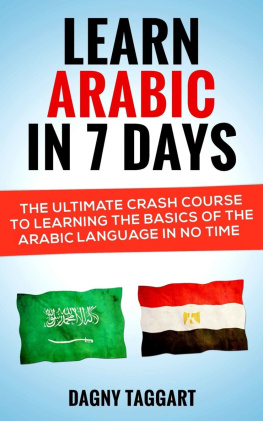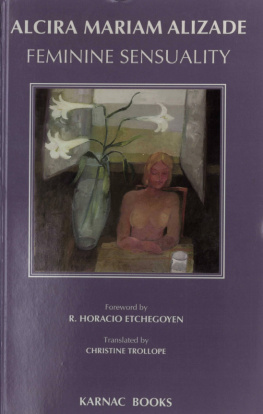I wrote these poems from right to left and from left to right, in Arabic and in English. I didnt translate them; I only wrote them twice.
Writing these poems in two languages maybe makes a new original. This process somehow liberated me from having to follow the first text, particularly when the second text came first, given the cultural connotation. To capture the poem in two lives is to mirror my exile, with all of its possibilities and risks. But as home is flashed through exile, a poem is sometimes born on the tip of another tongue. It was annoying to me in the beginning when my poem pulled me right and left, but I always follow my poetry, just as people say to follow your heart. Well, to justify my choice, I would claim that allowing such a dialogue between the two texts is democratic, and even hopeful that East and West may meet in that crossing line between two languages.
But this is not to say that Ive achieved a linguistic utopia. To produce a text in two languages is to always hold a mirror to the first text while the mirror behaves as if that text is actually her mirror. The poet is at home in both texts, yet she remains a stranger. This English edition shows readers one side of the mirror.
The Stranger in Her Feminine Sign
Everything has gender in Arabic: History is male. Fiction is female.
Dream is male. Wish is female. Feminine words are followed by a circle with two dots over it. They call this symbol the tied circle, knotted with wishes which come true only when forgotten or replaced by the wishes of others. In the town of tied wishes people feel great anticipation because a stranger will arrive today in her feminine sign. So scary, he says, how the moonhides in her red circle. Everyone is busy today listing wishes on pieces of paper theyll give to the wind. So scary, he says, how the moonhides in her red circle. Everyone is busy today listing wishes on pieces of paper theyll give to the wind.
When the stranger finds them on her way, shell collect them and adorn them to her circle, tossing off some old wishes to make space for the new. They say the dropped ones will come true. The strangers lateness worries those who wait. Someone says shes searching for a word to complete a special sentence, the gift shell bring to town. Another wonders if she seeks a verb or a noun, and offers to find her. A third warns that the stranger may turn him, with one touch, into a flower that blooms for only an instant before it withers and dies, her circle throbbing with songs that cause sadness and elation and something so obscure no one has a name for it.
Will she complete a verb or a noun phraseor go solo, a word complete on its own? They wonder. When they finally hear footsteps, they know the stranger must be near. Make sure the gate is open, they remind one another. They hear clinking A bracelet? A chain?
Song Inside a Fossil
Shes still looking down at her baby after 4,800 years. Her fossil has the curve of mothers telling endless stories in the dark. There were three birds in the cage, she says.
Two died of poisoned water. Though birds dont know what poison means, the survivor has the memory of thirst and of two silent birds. If birds memories are circles, a line must bisect them, tracing their migration to places that are neither homelands nor exiles. But what if the world, for birds, is all exile, till they leave it behind? The day her baby came into the world, she carried water to him in her voice. She sung so close, he could hear her heart beat like a bass drum. He wont remember the seeds her words scatter, but wont forget the debris of what was shattered from every wingbeat recalling her.
Birds dont know what coming to this world means, but the bird who survived sings. Is it an elegy for the two silent birds, or a way of coming back to life? Their circular embrace is a song inside a fossil, life in a cage.
Baghdad in Detroit
On the Fourth of July here in Detroit I hear the echo of Baghdad explosions. They say it is the sound of fireworks. Song by song I scatter my birds away from the fog of smoke. They say it is ordinary clouds in the sky.
A butterfly from the Tigris shore alights on my hand. No bombs today to scare her away. They say this is the Detroit River. I enter a shelter with the others in the crowd. We will leave at the end of the raid.
Plastic Death
In my childhood in Baghdad we played dead: we killed each other with plastic weapons.
Plastic Death
In my childhood in Baghdad we played dead: we killed each other with plastic weapons.
We lay on the floor, still as corpses for a minute or two. Then one of us laughed, exposing our plastic death; we held each other as the dying might life itself, but rose to play another game. The years turn over and Baghdad recedes with our childhoods into exile. From afar, we see children who look like we did. They kill each other, lie motionless on the floor.
Nisaba
How shall I call you when you have one hundred names? I say
Nisaba and I mean praises for the little things, I mean the big things, or rather the little things with their big shadows: the number to round off the killed ones to zero the chalk held by a girl who draws for the world a circle with everyone inside the open wings over the fires the soft moss briefly visible through the river like the faces of the absentees the comma between death and life the everyday practice of the doctor with the stethoscope pressed against a chest the blue flower in Novaliss dream.
Salwa
She has no map, only songs for places she will cross and forget.
Salwa
She has no map, only songs for places she will cross and forget.
She hums in secret and when words dont come she borrows the rhythm of the road, fast and slow. The birds understand. They answer in secret, too. She doesnt care much about transformations between day and night although shes puzzled and amazed by the moon, how it passes her by like a train disappearing with its passengers until it stops at the last station, alone at last. She waits for no one. History is dried blood in her lipstick.

